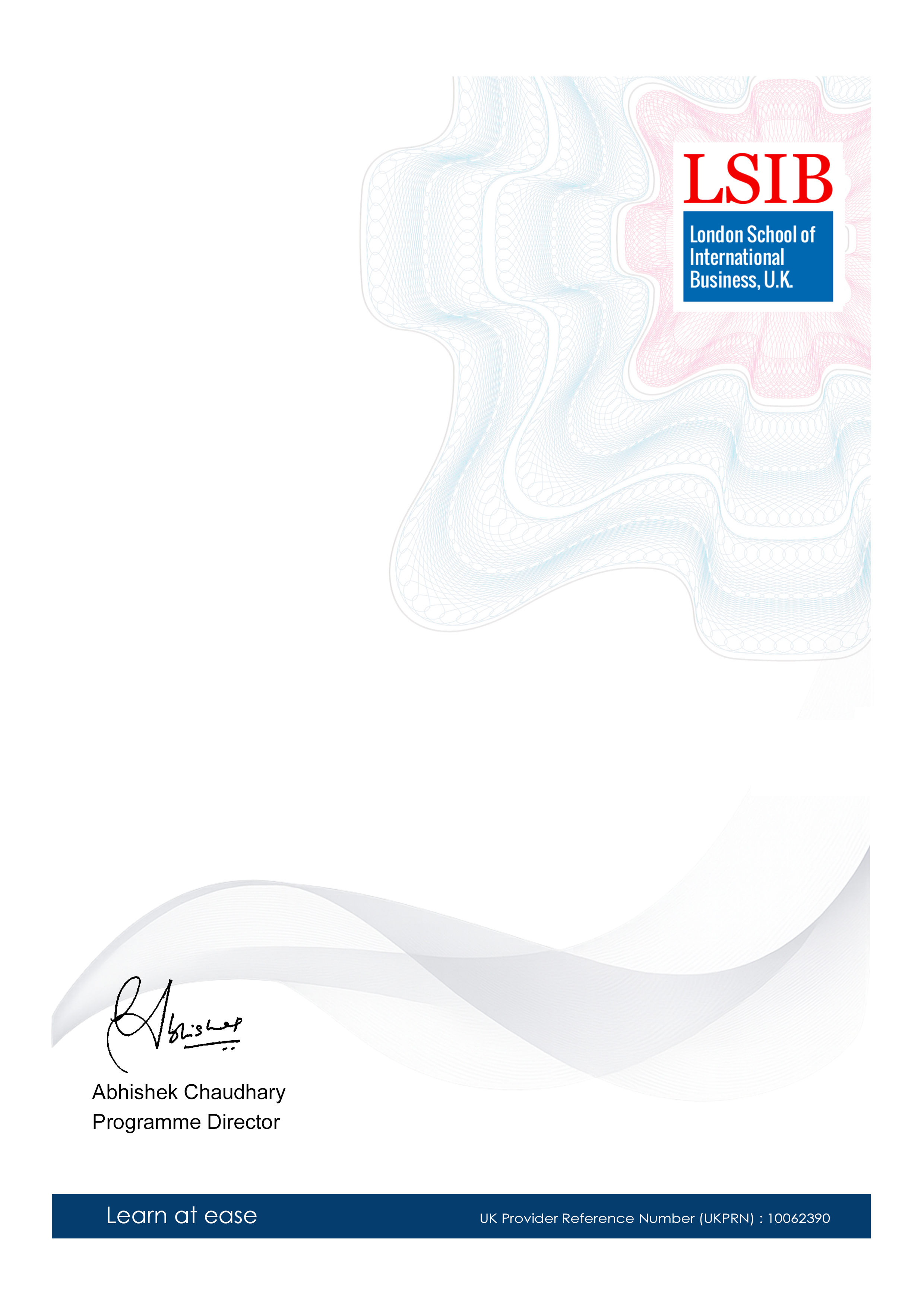Advancing in E-commerce Through the Professional Certificate in Reverse Logistics
-- viewing nowReverse Logistics is a crucial aspect of e-commerce, enabling businesses to optimize their supply chain operations and improve customer satisfaction. Through our Professional Certificate in Reverse Logistics, you'll gain the knowledge and skills to develop effective strategies for managing returns, repairs, and recycling.
6,390+
Students enrolled
GBP £ 140
GBP £ 202
Save 44% with our special offer
About this course
100% online
Learn from anywhere
Shareable certificate
Add to your LinkedIn profile
2 months to complete
at 2-3 hours a week
Start anytime
No waiting period
Course details
This unit focuses on analyzing and improving the flow of goods, services, and information from raw materials to end customers. It covers the key concepts of supply chain management, including demand forecasting, inventory management, and transportation management. • Reverse Logistics Strategies
In this unit, students learn about the different strategies and techniques used in reverse logistics, including product returns, repair, refurbishment, and recycling. It also covers the role of reverse logistics in reducing waste and improving sustainability. • Product Recovery and Disposition
This unit explores the various methods of product recovery and disposition, including repair, refurbishment, and recycling. It also covers the importance of product take-back programs and the role of product recovery in reducing waste and improving sustainability. • Supply Chain Visibility and Analytics
In this unit, students learn about the importance of supply chain visibility and analytics in making informed decisions. It covers the use of data analytics and visualization tools to track and analyze supply chain performance, identify areas for improvement, and optimize supply chain operations. • Reverse Logistics Technology and Systems
This unit focuses on the role of technology and systems in supporting reverse logistics operations. It covers the use of software and systems to manage product returns, repair, and refurbishment, as well as the importance of data analytics and visualization in optimizing reverse logistics operations. • Supply Chain Risk Management
In this unit, students learn about the importance of supply chain risk management in reducing the impact of disruptions and improving supply chain resilience. It covers the use of risk assessment and mitigation strategies to identify and manage supply chain risks. • Product Design for Sustainability
This unit explores the role of product design in reducing waste and improving sustainability. It covers the use of design for sustainability principles and practices to create products that are more recyclable, reusable, and repairable. • Reverse Logistics and Sustainability
In this unit, students learn about the importance of reverse logistics in reducing waste and improving sustainability. It covers the role of reverse logistics in reducing greenhouse gas emissions, conserving natural resources, and promoting sustainable consumption and production patterns. • Supply Chain Collaboration and Partnerships
This unit focuses on the importance of supply chain collaboration and partnerships in improving supply chain performance and reducing costs. It covers the use of collaborative planning, forecasting, and replenishment (CPFR) and other supply chain collaboration tools and techniques. • Reverse Logistics and E-commerce
In this unit, students learn about the importance of reverse logistics in e-commerce, including product returns, repair, and refurbishment. It covers the use of technology and systems to manage product returns and improve the customer experience in e-commerce.
Career path
| Role | Description |
|---|---|
| Reverse Logistics Manager | Oversees the entire reverse logistics process, ensuring efficient and cost-effective returns, repairs, and recycling of products. |
| Supply Chain Analyst | Analyzes and optimizes supply chain operations, including inventory management, transportation, and warehousing, to minimize costs and maximize efficiency. |
| Logistics Coordinator | Coordinates the movement of goods, products, and materials, ensuring timely and cost-effective delivery to customers and stakeholders. |
| E-commerce Specialist | Develops and implements e-commerce strategies, including online product listings, pricing, and promotions, to drive sales and revenue growth. |
| Operations Manager | Oversees the day-to-day operations of a business, including production, inventory management, and quality control, to ensure efficient and effective delivery of products and services. |
| Data Analyst | Collects, analyzes, and interprets data to inform business decisions, including sales trends, customer behavior, and market analysis. |
Entry requirements
- Basic understanding of the subject matter
- Proficiency in English language
- Computer and internet access
- Basic computer skills
- Dedication to complete the course
No prior formal qualifications required. Course designed for accessibility.
Course status
This course provides practical knowledge and skills for professional development. It is:
- Not accredited by a recognized body
- Not regulated by an authorized institution
- Complementary to formal qualifications
You'll receive a certificate of completion upon successfully finishing the course.
Why people choose us for their career
Loading reviews...
Frequently Asked Questions
Skills you'll gain
Course fee
- 3-4 hours per week
- Early certificate delivery
- Open enrollment - start anytime
- 2-3 hours per week
- Regular certificate delivery
- Open enrollment - start anytime
- Full course access
- Digital certificate
- Course materials
Get course information
Earn a career certificate

